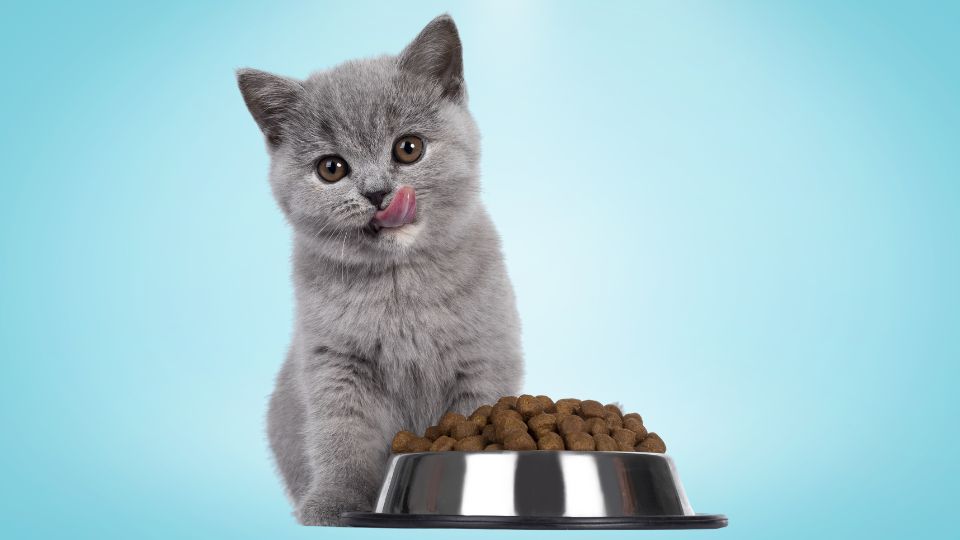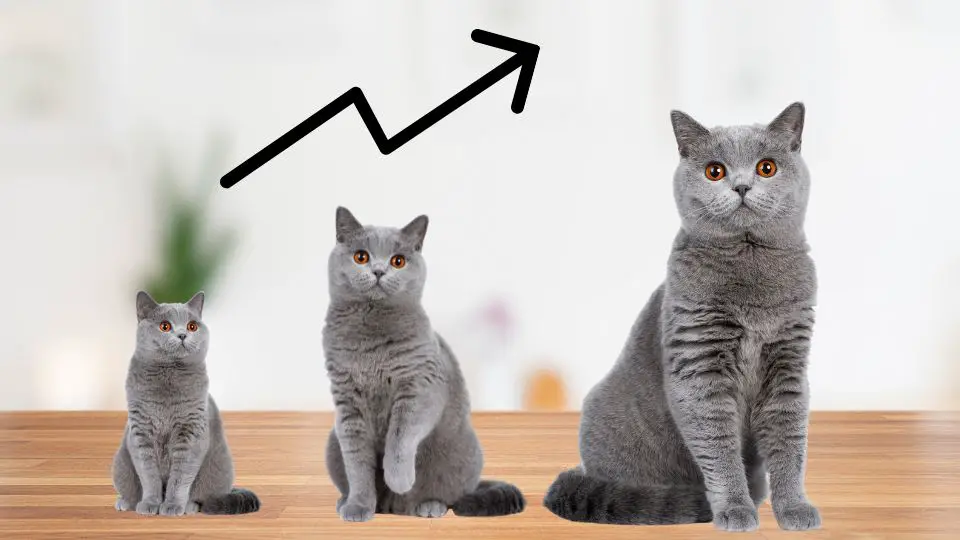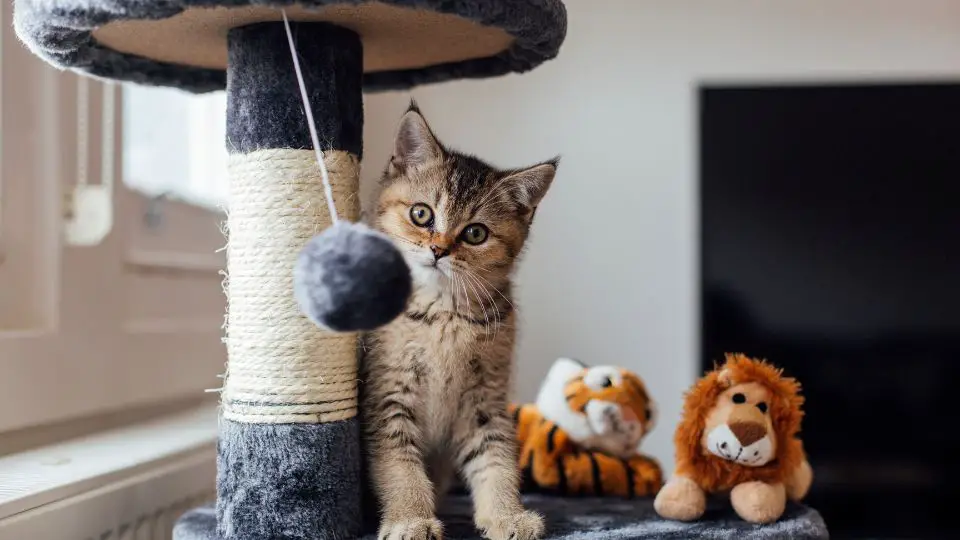Welcome to our guide on the best diet for British Shorthair kittens! Providing your kitten with a nutritious and well-balanced diet is essential for their growth, development, and overall health.
As a proud owner of a British Shorthair kitten, you want to ensure they receive the best possible nutrition to support their unique needs.
In this article, we will explore the ideal diet for British Shorthair kittens, including recommended products and feeding guidelines. With the right diet, you can give your kitten the foundation they need for a healthy and vibrant life.
Nutritional Requirements for British Shorthair Kittens
British Shorthair kittens, like all kittens, have specific nutritional requirements to support their growth and development. Providing a balanced and nutritious diet is crucial for their overall health and well-being. Here are the key nutritional requirements for British Shorthair kittens:
Protein
Protein is an essential nutrient for British Shorthair kittens as it plays a crucial role in their growth and muscle development. High-quality animal-based protein sources, such as chicken, turkey, or fish, should be included in their diet. Protein supports the building and repair of tissues, helps maintain a healthy immune system, and provides energy for their active lifestyles.
Fat
Fat is another important component of a British Shorthair kitten’s diet. It serves as a concentrated source of energy and helps maintain healthy skin and a glossy coat. Omega-3 and omega-6 fatty acids, found in sources like fish oil or flaxseed, are beneficial for their skin and coat health. Including healthy fats in their diet is important for optimal growth and overall well-being.
Carbohydrates
While kittens have a higher protein and fat requirement, carbohydrates also play a role in providing energy and fiber. Complex carbohydrates, such as whole grains or vegetables, can contribute to their overall nutrition and digestive health. However, note that carbohydrates should not be the primary component of their diet.
Vitamins and minerals
British Shorthair kittens require a wide range of vitamins and minerals to support their overall health and immune system function. These include vitamins A, E, and C, as well as minerals like calcium, phosphorus, and zinc. Feeding them a well-balanced and complete diet that includes a variety of nutrient-rich ingredients ensures they receive the necessary vitamins and minerals for their growth and development.
Meeting the nutritional requirements of British Shorthair kittens is essential to support their healthy growth, strong immune system, and overall well-being. It is recommended to feed them high-quality commercial kitten food specifically formulated to meet their unique needs. Consultation with a veterinarian can also provide valuable guidance in choosing the right diet for your British Shorthair kitten to ensure they receive the optimal nutrition they need during this important stage of their life.
Best british shorthair kitten diet
Throughout the day, it’s important to provide a well-rounded and balanced diet for your British Shorthair kitten. Here’s an example diet:
Breakfast
In the morning, offer your British Shorthair kitten 1/4 cup of high-quality dry kitten food. Look for a brand that contains essential nutrients, vitamins, and minerals to support their growth and development. Dry kitten food is convenient and helps promote dental health by reducing plaque and tartar buildup.
To add variety and moisture to their diet, serve a tablespoon of wet kitten food. Royal Canin British Shorthair Kitten Gravy is a great choice as it is specially formulated to meet the specific nutritional needs of British Shorthair kittens. The gravy texture provides a delicious and hydrating option that your kitten will enjoy.
Lunch
For their midday meal, provide another 1/4 cup of dry kitten food. This ensures your kitten receives a sufficient amount of nutrients throughout the day. Remember to check the feeding guidelines on the packaging to determine the appropriate portion size for your kitten’s age and weight.
To introduce different flavors and textures, include a different wet kitten food option. Hill’s Science Diet Kitten Chicken & Vegetable Stew is a nutritious choice that combines real chicken with wholesome vegetables. This variation keeps mealtime exciting and adds extra moisture to their diet.
Afternoon snack
As a treat or reward, offer a small portion of freeze-dried chicken treats or kitten-specific treats. These treats are tasty and provide a fun way to bond with your kitten. However, remember to provide treats in moderation to avoid excessive calorie intake.
Dinner
During dinner time, serve another 1/4 cup of dry kitten food to ensure your kitten receives adequate nutrition. Dry food is a convenient option that can be left out for free feeding or offered in measured portions depending on your kitten’s feeding preferences.
To provide a different flavor profile, offer a wet kitten food option such as Purina Pro Plan Kitten Ocean Whitefish & Tuna Entree. This variety helps prevent mealtime monotony and keeps your kitten engaged and satisfied.
Remember to always have fresh water available for your British Shorthair kitten throughout the day. Providing a balanced diet with a mix of dry and wet food ensures they receive essential nutrients, maintains hydration, and supports their overall health.
Note that the feeding amounts and frequency may vary depending on your kitten’s age, weight, and individual needs. Consult with your veterinarian for personalized feeding recommendations to ensure your British Shorthair kitten is receiving the appropriate nutrition for optimal growth and development. Regular monitoring of their weight and overall health is also recommended during this stage.
Choosing the Right Food for British Shorthair Kittens
Providing them with a well-balanced diet is essential for their growth, development, and overall health. Here are some factors to consider when choosing the right food for your British Shorthair kitten:
High-quality commercial kitten food
Opt for a brand that is specifically formulated for kittens. These foods are designed to meet the nutritional requirements of growing kittens and usually provide a balanced combination of proteins, fats, carbohydrates, vitamins, and minerals. Look for reputable brands that use high-quality ingredients and have undergone rigorous testing to ensure safety and nutritional adequacy.
Wet vs. dry food
Both wet and dry food options have their advantages and considerations. Wet food, such as canned or pouch food, has higher moisture content, which helps maintain hydration and can be more palatable for some kittens. It can also provide variety and help prevent urinary tract issues.
Dry food, on the other hand, offers convenience, dental benefits, and can be left out for longer periods without spoiling. Some owners prefer a combination of both wet and dry food to provide a balanced diet.
Reading food labels
Take the time to read and understand the ingredients and nutritional information on the food labels. Look for high-quality protein sources, such as chicken, turkey, or fish, listed as the first ingredients. Avoid foods that contain excessive fillers, artificial additives, or preservatives. Pay attention to the guaranteed analysis, which provides information on the nutrient content of the food, including protein, fat, fiber, and moisture levels.
Feeding Guidelines for British Shorthair Kittens
Feeding your British Shorthair kitten a proper diet is crucial for their growth and development. Establishing healthy feeding guidelines can help ensure they receive the necessary nutrients and maintain a balanced diet. Here are some key considerations when it comes to feeding your British Shorthair kitten:
Frequency of meals
Kittens have higher energy needs than adult cats and typically require more frequent meals. It is recommended to feed your British Shorthair kitten small, evenly spaced meals throughout the day. Aim for at least three to four meals per day, gradually reducing the frequency as they grow older. This helps support their energy levels and prevents overeating.
Portion control
It’s important to provide appropriate portion sizes to avoid underfeeding or overfeeding your kitten. Follow the feeding guidelines provided by the specific kitten food brand you choose. These guidelines are typically based on your kitten’s weight and age. However, it’s essential to monitor your kitten’s weight and body condition and make adjustments as necessary. Avoid free-feeding, as it can lead to overeating and potential weight issues.
Transitioning to adult cat food
As your British Shorthair kitten grows, they will eventually need to transition from kitten food to adult cat food. This usually occurs around 12 months of age, but it can vary depending on the individual kitten and veterinarian recommendations. Gradually introduce the new food by mixing small amounts with their kitten food over the course of several weeks.
This allows their digestive system to adapt to the new food gradually. Monitor their response to the transition and consult with your veterinarian if you have any concerns.
Special Considerations for British Shorthair Kittens
Growth rate
British Shorthair kittens have a slower growth rate compared to some other breeds. It’s important to adjust their diet accordingly to ensure they receive adequate nutrition for healthy growth. Follow the feeding guidelines provided by your veterinarian or the kitten food brand you choose, and monitor their weight and body condition regularly. If you have any concerns about their growth rate or development, consult with your veterinarian for personalized advice.
Weight management
British Shorthairs are prone to weight gain and obesity, so it’s crucial to monitor their weight and promote a healthy body condition. Avoid overfeeding and provide portion-controlled meals to prevent excessive weight gain. Engage your kitten in regular play sessions to encourage physical activity and exercise. If you notice your kitten gaining weight rapidly or becoming overweight, consult with your veterinarian for guidance on managing their weight effectively.
Allergies and sensitivities
Just like any other cat, British Shorthair kittens can develop allergies or sensitivities to certain ingredients or foods. It’s important to monitor their response to their diet and be aware of any signs of allergies, such as digestive issues, skin irritations, or excessive scratching. If you suspect your kitten has allergies or sensitivities, consult with your veterinarian. They can help identify the allergen and recommend appropriate dietary changes or specialized diets to address the issue.
When choosing a diet for your British Shorthair kitten, opt for high-quality commercial kitten food that provides the essential nutrients they need for their growth and development. Look for brands that specifically cater to the nutritional needs of kittens and have a reputation for quality and safety. Read food labels carefully to ensure the ingredients meet the necessary standards and avoid any known allergens or fillers that may be detrimental to your kitten’s health.
Supplementing the Diet
Supplementing the diet of your British Shorthair kitten can be a great way to provide additional nutrients or address specific health concerns. Here are a couple of key points to consider:
Treats and snacks
Treats can be a fun way to reward your kitten or add some variety to their diet. When choosing treats, opt for healthy options that are specifically formulated for kittens. Look for treats that are low in calories, free from artificial additives, and provide additional benefits, such as dental health or skin support. Remember to offer treats in moderation to prevent excessive calorie intake and potential weight gain. Treats should only make up a small portion of your kitten’s overall diet.
Supplements
In some cases, your veterinarian may recommend dietary supplements to address specific health concerns or support your kitten’s overall well-being. Examples of supplements that may be beneficial include omega-3 fatty acids for skin and coat health, probiotics for digestive health, or joint supplements for joint support. However, it’s important to consult with your veterinarian before introducing any supplements. They can assess your kitten’s specific needs, recommend appropriate supplements, and provide guidance on dosage and administration.
Note that a balanced and high-quality commercial kitten food should provide your British Shorthair kitten with the necessary nutrients for their growth and development. Supplements should not be used as a substitute for a proper diet but rather as an addition to address specific needs or health concerns.
Conclusion
As you embark on your journey of raising a British Shorthair kitten, remember that their diet plays a crucial role in their overall well-being. By selecting high-quality kitten food, offering a variety of flavors and textures, and following appropriate feeding guidelines, you can provide your kitten with the best nutrition they need to thrive.
Consult with your veterinarian for personalized recommendations and monitor your kitten’s growth and development to ensure they are reaching their milestones. With a well-balanced diet, you are setting your British Shorthair kitten up for a lifetime of health and happiness.







